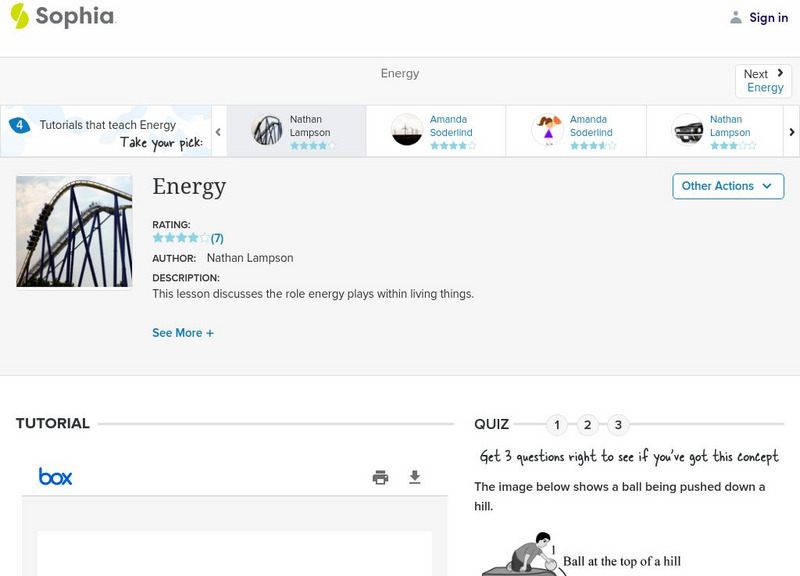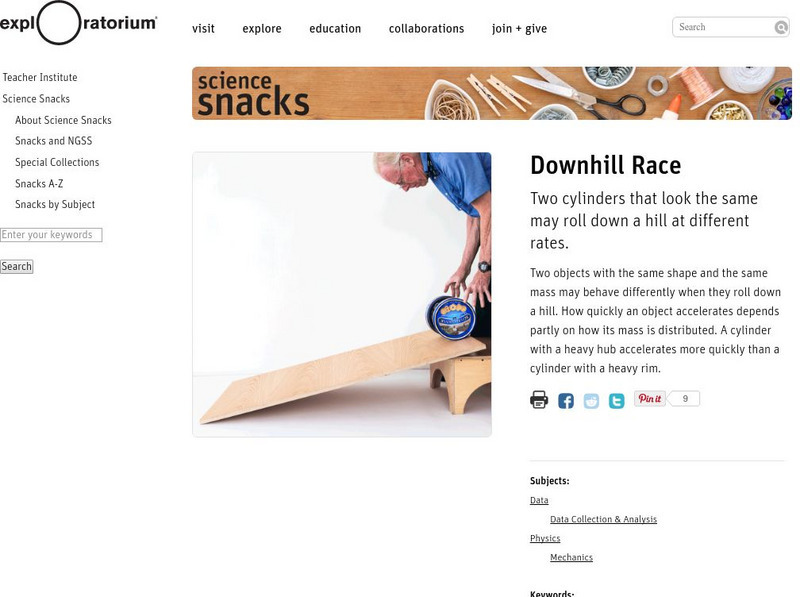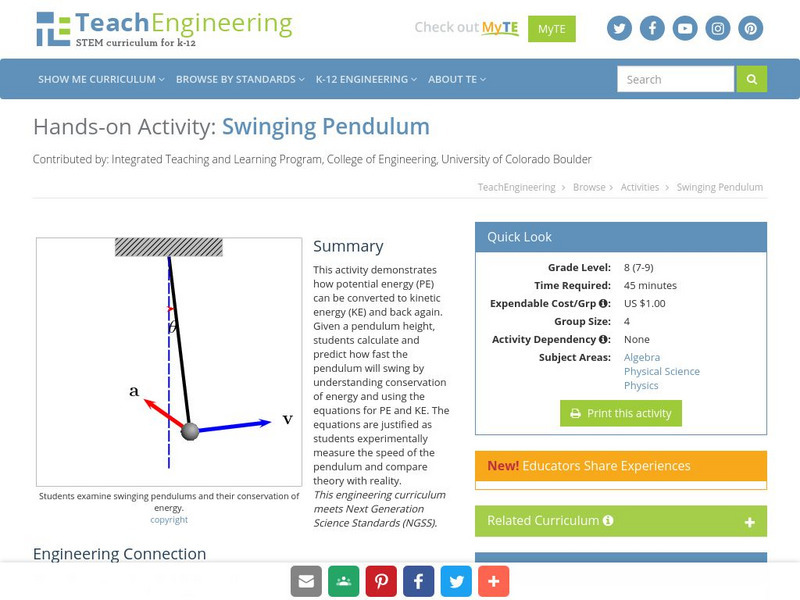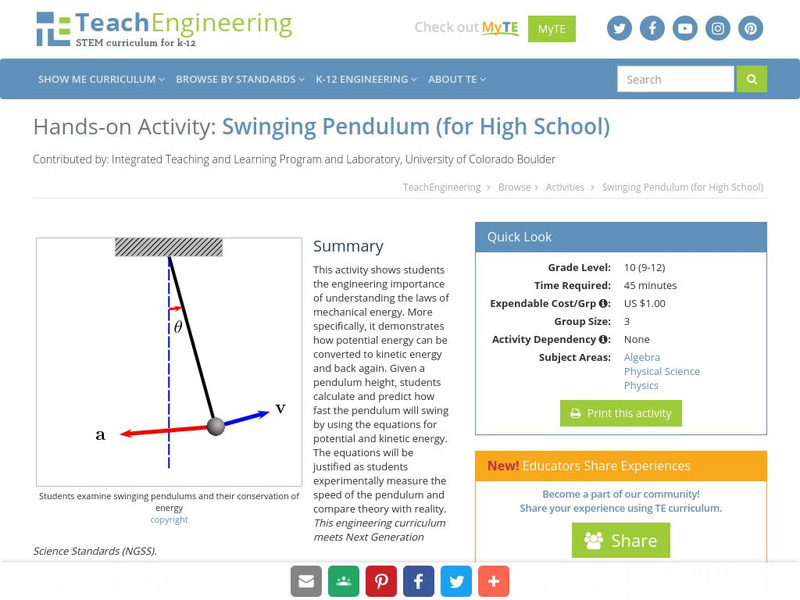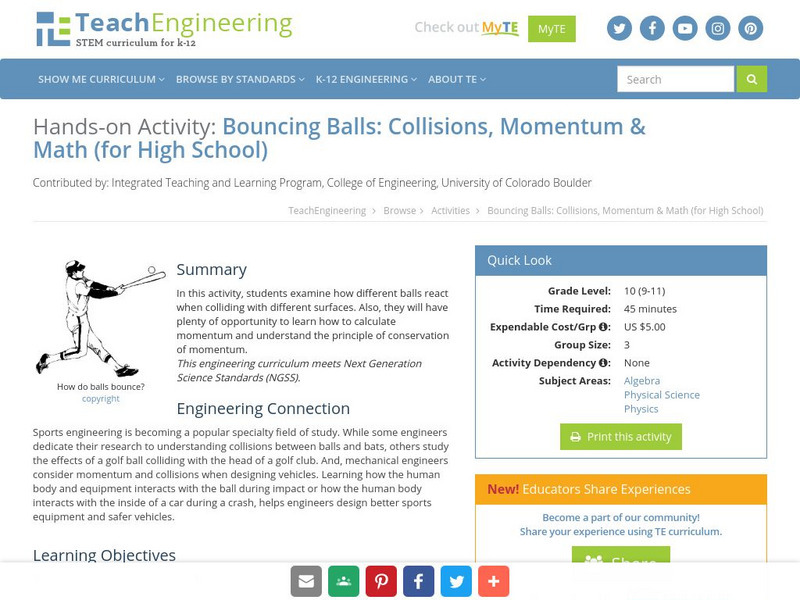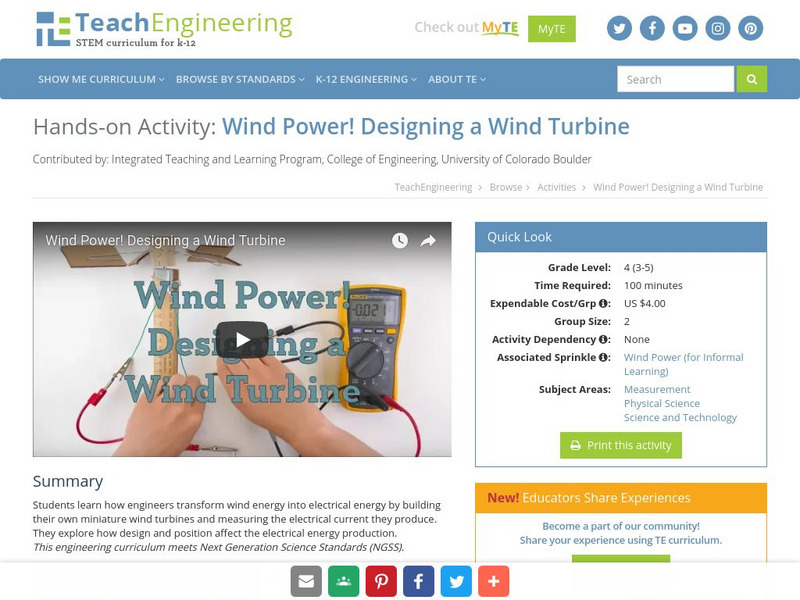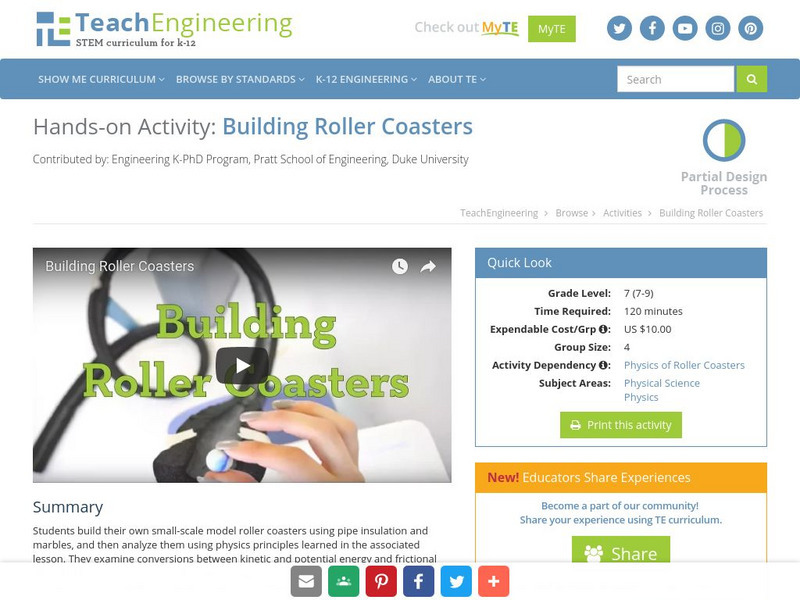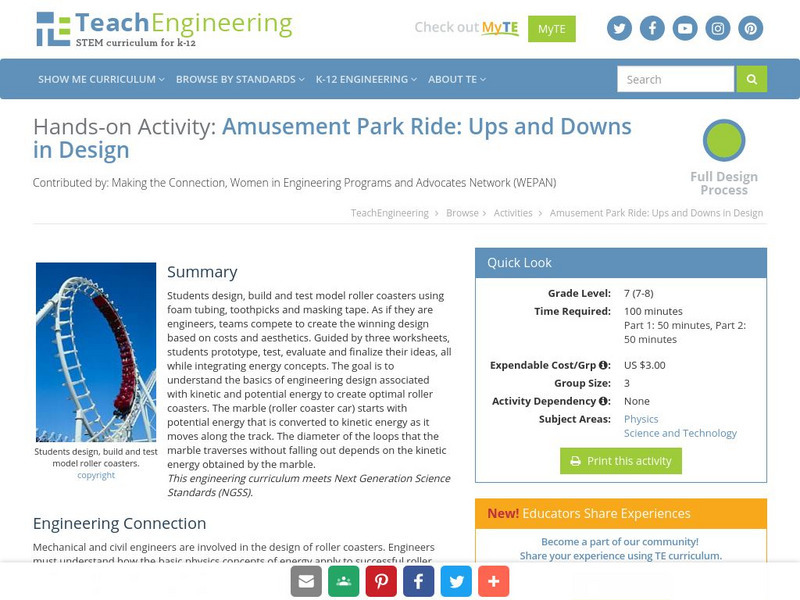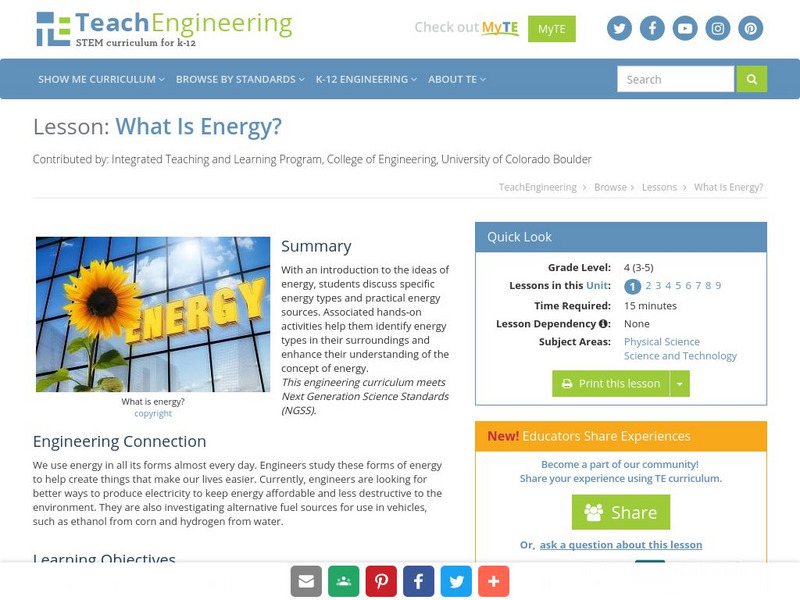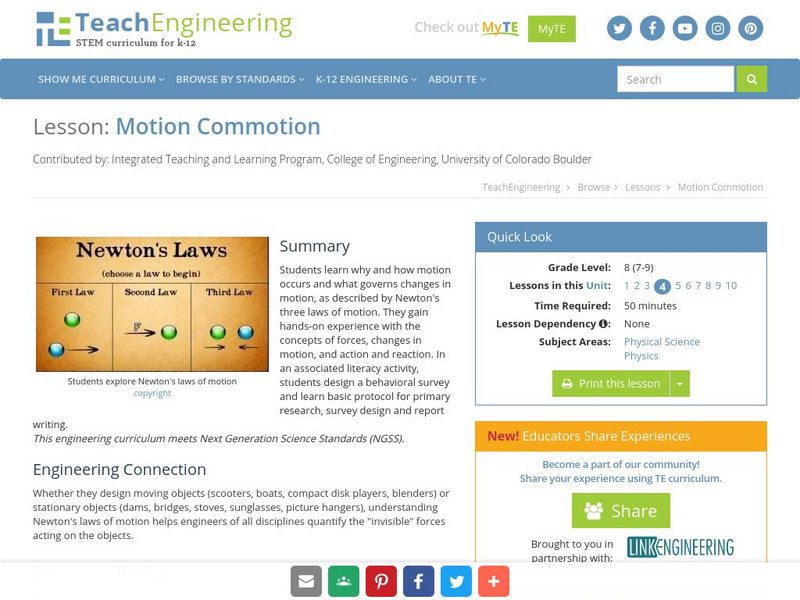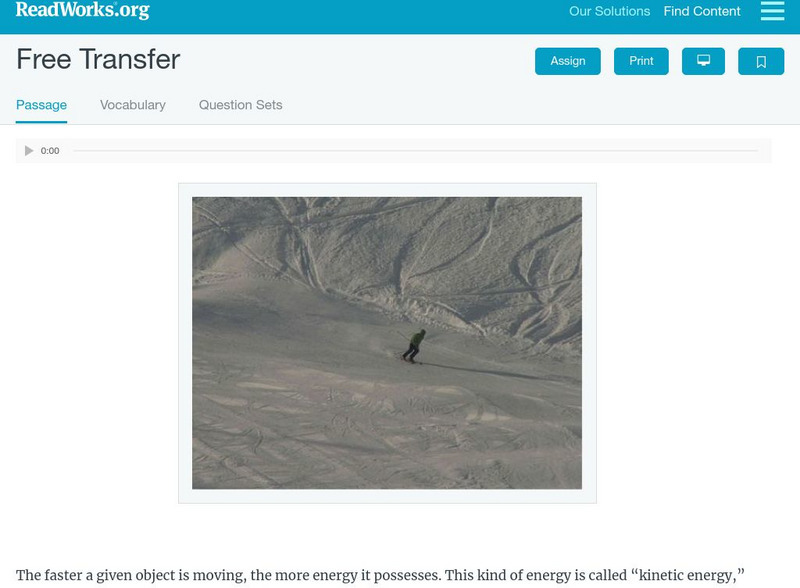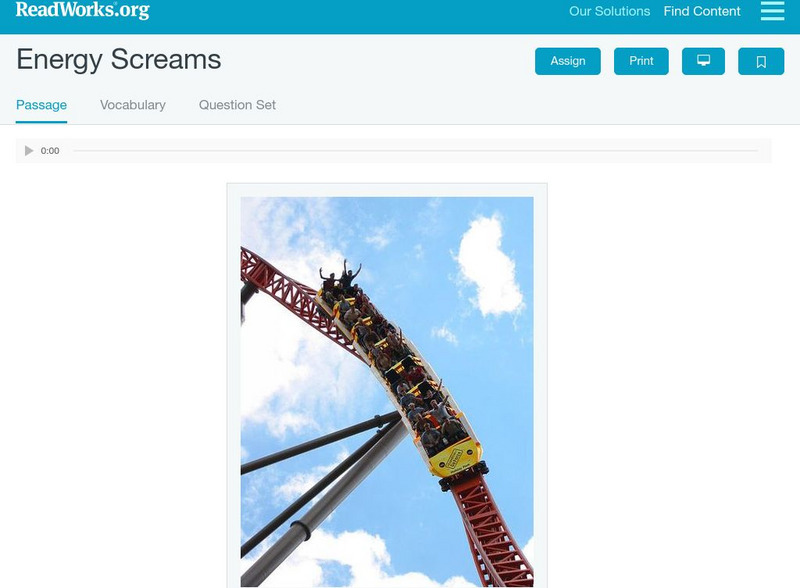Hi, what do you want to do?
E-learning for Kids
E Learning for Kids: Science: Pirates: What Is Energy Conversion?
This lesson covers the different types of energy, the definitions of kinetic and potential energy, how energy can be converted into different forms, and the law of conservation of energy.
Bozeman Science
Bozeman Science: Work and Energy
In the following video Paul Andersen explains how the mechanical energy added or removed from a system results from work. For work to occur a force must act parallel to the displacement of the system. Since work and energy are equivalent...
Sophia Learning
Sophia: Energy: Lesson 7
This lesson discusses the role energy plays within living things. It is 7 of 7 in the series titled "Energy."
Sophia Learning
Sophia: Transfer of Energy: Lesson 1
This lesson explains the difference between the types of energy, including Potential Energy and Kinetic Energy. It is 1 of 2 in the series titled "Transfer of Energy."
Exploratorium
Exploratorium: Science Snacks: Downhill Race
An activity that explores how two cylinders that are identical in shape and mass may travel down a hill differently due to how their mass is distributed. Learn how the distribution of mass in an object can affect its translational...
Other
How to smile.org: Build a Wind Turbine
A step-by-step guide to build a wind turbine. Using their wind turbine, students test how much energy is created by using a variety of wind blades and wind speeds.
Museum of Science
Museum of Science and Industry Chicago: Online Science: Drop Eggs Into Cups
Step-by-step illustrated instructions showing how to drop four eggs into four cups without touching them. Demonstrates the concept of inertia according to Newton's first law of motion.
Museum of Science
Museum of Science and Industry: Online Science: Activities: Make a Comeback Can
Step-by-step instructions, with photos, of how to make a metal can come back when it is sent rolling away. The can uses both kinetic and potential energy to roll away and back.
TeachEngineering
Teach Engineering: Swinging Pendulum
This activity demonstrates how potential energy (PE) can be converted to kinetic energy (KE) and back again. Given a pendulum height, students calculate and predict how fast the pendulum will swing by understanding conservation of energy...
TeachEngineering
Teach Engineering: Swinging Pendulum
This activity shows students the engineering importance of understanding the laws of mechanical energy. More specifically, it demonstrates how potential energy can be converted to kinetic energy and back again. Given a pendulum height,...
TeachEngineering
Teach Engineering: Bouncing Balls (For High School)
In this activity, students examine how different balls react when colliding with different surfaces. Also, they will have plenty of opportunity to learn how to calculate momentum and understand the principle of conservation of momentum.
TeachEngineering
Teach Engineering: Ramp and Review
In this hands-on activity - rolling a ball down an incline and having it collide into a cup - the concepts of mechanical energy, work and power, momentum, and friction are all demonstrated. During the activity, students take measurements...
TeachEngineering
Teach Engineering: Ramp and Review (For High School)
In this hands-on activity - rolling a ball down an incline and having it collide into a cup - the concepts of mechanical energy, work and power, momentum, and friction are all demonstrated. During the activity, students take measurements...
TeachEngineering
Teach Engineering: Wind Power!
Students learn how engineers transform wind energy into electrical energy by building their own miniature wind turbines and measuring the electrical current it produces. They explore how design and position affect the electrical energy...
TeachEngineering
Teach Engineering: Building Roller Coasters
In this hands-on activity students learn about the laws of physics by creating a marble roller coaster.
TeachEngineering
Teach Engineering: Amusement Park Ride: Ups and Downs in Design
This unit has students design and build foam tubing roller coasters. The design process integrates energy concepts as they test and evaluate their designs that address the task as an engineer would. The goal is for students to understand...
TeachEngineering
Teach Engineering: Kinetic and Potential Energy of Motion
For this lesson, students are introduced to both potential energy and kinetic energy as forms of mechanical energy. A hands-on activity demonstrates how potential energy can change into kinetic energy by swinging a pendulum, illustrating...
TeachEngineering
Teach Engineering: Work and Power: Waterwheel
Investigating a waterwheel illustrates to students the physical properties of energy. They learn that the concept of work, force acting over a distance, differs from power, which is defined as force acting over a distance over some...
TeachEngineering
Teach Engineering: What Is Energy?
With an introduction to the ideas of energy, students discuss specific types of energy and the practical sources of energy. Hands-on activities help them identify types of energy in their surroundings and enhance their understanding of...
TeachEngineering
Teach Engineering: Motion Commotion
Students learn why and how motion occurs and what governs changes in motion, as described by Newton's three laws of motion. They gain hands-on experience with the concepts of forces, changes in motion, and action and reaction. In an...
CK-12 Foundation
Ck 12: Chemistry: Boiling
[Free Registration/Login may be required to access all resource tools.] Covers boiling point.
Read Works
Read Works: Free Transfer
[Free Registration/Login Required] This passage discusses different types of energy transfer. This text is a stand-alone curricular piece that reinforces essential reading skills and strategies and establishes scaffolding for vocabulary...
Read Works
Read Works: Energy Screams
[Free Registration/Login Required] An informational text about potential and kinetic energy on a roller coaster.. A question sheet is available to help students build skills in reading comprehension.
CK-12 Foundation
Ck 12: Plix: Potential Energy Diagrams: Conservation of Energy
[Free Registration/Login Required] Drag the red point up and down to explore the interaction between potential energy and kinetic energy in a barbell.







